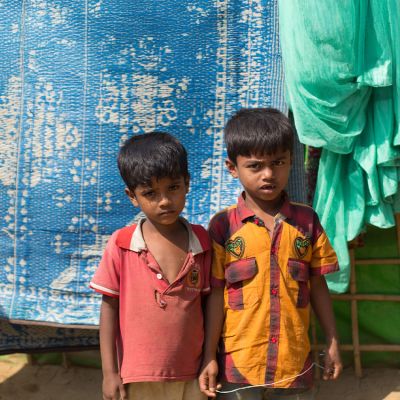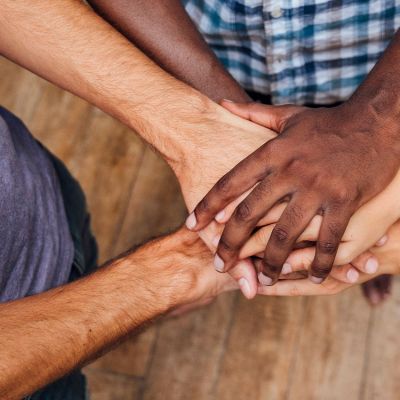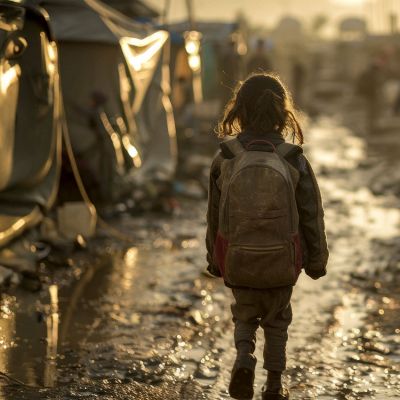Written by Clara Chiu (Head of Partnership Development)
Throughout the long process of human history, conflicts have often led to waves of refugees, displacing countless families. Those who migrate internally are known as ‘Internally Displaced Persons’ (IDPs), while those who leave their home country and seek refuge in a neighbouring country are known as ‘Refugees’. These conflicts can be caused by political struggles, religious persecution, ethnic conflicts, and so on.
The Institute for Economics & Peace (IEP), an Australian think tank, released the 18th edition of the Global Peace Index 2024 (GPI) in June 2024. The report ranks the level of peace in 163 independent countries and territories, covering 99.7% of the world’s population. The report states that there are currently 56 conflicts, the most since the end of World War II. In 97 countries, peace has continued to deteriorate more than in any previous year since the GPI was released in 2008. Iceland is the most peaceful country, ranking first in the GPI, and the least peaceful country is Yemen, ranking 163rd. The countries with CEDAR’s presence, such as Lebanon (134th), Myanmar (148th) and Afghanistan (160th), all ranked lower as places of frequent conflict.
The Mid-Year Global Trends Report 2024, released by The Office of the United Nations High Commissioner for Refugees (UNHCR) on 13 June 2024, revealed that the total number of people forcibly displaced globally increased to 122 million by June 2024, up from 117 million at the end of 2023. This is equivalent to 1 in 67 people being forced to migrate—almost double the ratio of 1 in 114 a decade earlier—and 87% of those people live in low-income and middle-income countries.
Whether it’s a civil war or a conflict between countries, people affected by conflicts face many difficulties as they flee. Many refugees carry heavy psychological stress and trauma, migrating from one place to another without food, medicine and other urgently needed supplies. In April 2024, CEDAR funded a Myanmar partner to assist people fleeing from war in the Kachin state by distributing medicines and emergency food supplies. In Lebanon, CEDAR supported partners to work with refugee families from Syria, helping to educate refugee children in an unfamiliar country, providing psychological support to help them adjust to life in a foreign country and cultural differences, and providing warming items for their families during the winter months.
Emergency humanitarian assistance in times of conflict can address the immediate needs of those forced to flee. However, reducing conflict is the root cause, and it requires cooperation and dialogue between global leaders in each country or region to promote peace and stability. Despite the challenges, everyone has a role, from raising personal awareness of issues such as peace and reconciliation and refugees to supporting organisations addressing humanitarian crises.
As believers, being a peacemaker is not just an ideal but a responsibility that we should shoulder. Let us encourage one another with the hymn ‘Make Me a Channel of Your Peace’: ‘Where there is hatred, let me bring your love; where there is injury, your pardon, Lord; and where there’s doubt, true faith in you. Where there’s despair in life, let me bring hope; where there is darkness, only light; and where there’s sadness, ever joy’. The secret of believers’ ability to sow good seeds under challenging situations is suggested by the hymn, ‘Master grant that I may never seek; so much to be consoled as to console; to be understood as to understand; to be loved as to love with all my soul’.
As believers, being a peacemaker is not just an ideal but a responsibility that we should shoulder. Let us encourage one another with the hymn ‘Make Me a Channel of Your Peace’: ‘Where there is hatred, let me bring your love; where there is injury, your pardon, Lord; and where there’s doubt, true faith in you. Where there’s despair in life, let me bring hope; where there is darkness, only light; and where there’s sadness, ever joy’. The secret of believers’ ability to sow good seeds under challenging situations is suggested by the hymn,
Master grant that I may never seek; so much to be consoled as to console; to be understood as to understand; to be loved as to love with all my soul.
ARTICLES OF THIS ISSUE
Written by Ken Wong (Communications Officer) In a turbulent world, news of wars and disasters always surrounds us. In …
Written by Tony Chan (Senior Communications Officer) Scriptures reading: Luke 10:35 The next day he took out two denar…
Written by Clara Chiu (Head of Partnership Development) Throughout the long process of human history, conflicts have o…





